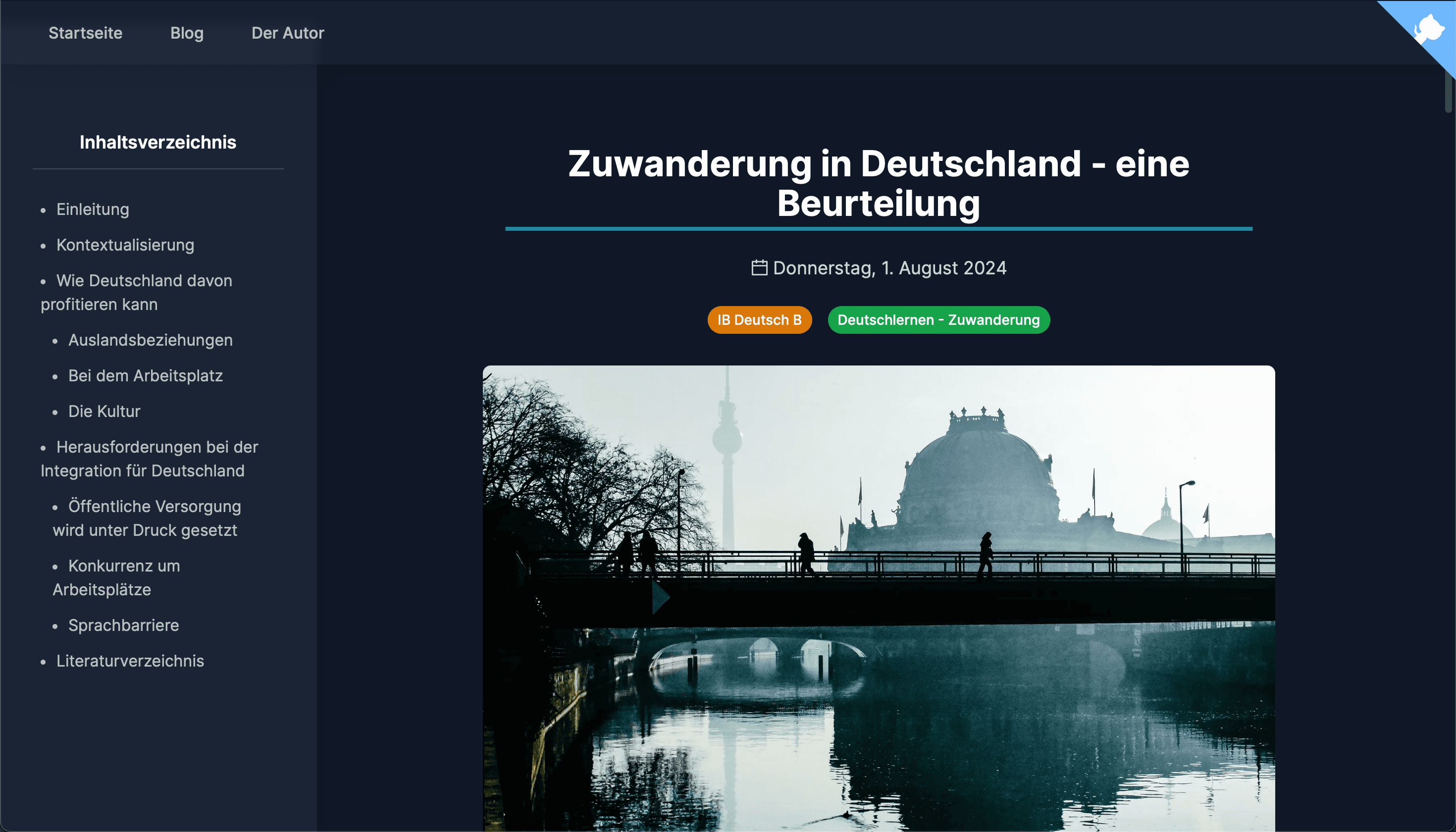Immigration in Germany and Globally - A Collaborative and Evaluative Report Written in German
Thu Aug 01 2024Through collaborative efforts of research, we aim to conduct an evaluative study of various aspects of immigration, including its socio-economic, cultural, and political impacts.Focus and Aim
The primary aim of this CAS activity is to deepen our understanding of immigration, particularly focusing on its implications in Germany and globally. Through collaborative efforts of research, we aim to conduct an evaluative study of various aspects of immigration, including its socio-economic, cultural, and political impacts. Our focus extends beyond mere data collection; we seek to analyze and interpret the gathered information critically. The ultimate goal is to present our findings in a comprehensive report that highlights the multifaceted nature, while learning a new language.
This collaborative activity involves two people.
Learning Outcomes
Addressed Learning Outcomes:
- Demonstrate engagement with issues of global significance.
- Demonstrate how to initiate and plan a CAS experience.
- Demonstrate the skills and recognize the benefits of working collaboratively.
- Recognize and consider the ethics of choices and actions.
- Show commitment to and perseverance in CAS experiences.
CAS Hours
CAS Stages
Investigation & Preparation
Research will include gathering literature and analyzing data. We will identify key areas and structure the report in an easy-to-follow manner. Tasks are to be divided among the two of us based on expertise and planned wisely according to time allocations and considerations of skills.
Action
Once the research is to a large extent complete, I will start composing the report in German, in the process of which I will be actively engaging with my partner to peer-assess and ensure that the content is easily readable and accurate.
At the end of the process, the report will be published on my German blog website, mathe-auf-deutsch.
Evidence

Reflection
Although the article focused on immigration in Germany, it also provided us with a broader evaluation of immigration globally. The biggest challenge arose during the stage of research - my peer and I had to search through a vast amount of materials online to obtain reliable and accurate information, which was especially difficult as the required information primarily falls into the factual and statistical category and we had to compare different sources and decide on the most credible; however, the collaborative engagement of both of us shortened the research stage and helped to allow the drafting start sooner. Beyond that, sometimes, statistical figures were merely approximations, which hindered the attempt to enhance the credibility of our article. Nonetheless, they sufficed to support our arguments. Ultimately, we managed to ensure that the data is accurate and our arguments are thoroughly backed up by evidence and justification, with all sources identified and cited, addressing ethical requisites and academic integrity.